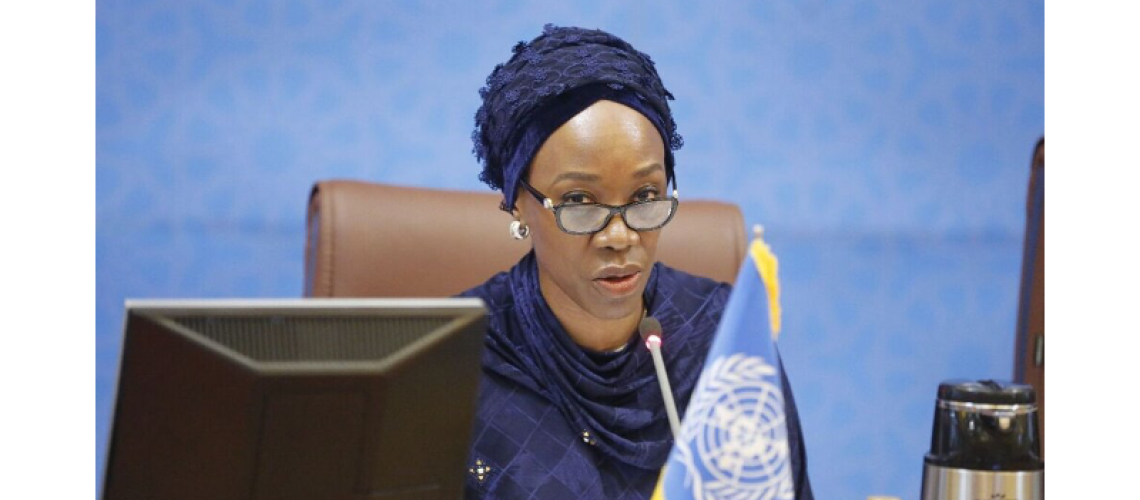
On 26th August, the UN Country Team (UNCT) and the Government of the Islamic Republic of Iran agreed on a roadmap to support the implementation of the new National Disaster Risk Reduction Strategy.
The Islamic Republic of Iran is one of the countries to have received CADRI’s support this year. A multi-disciplinary team composed of FAO, UNDP, UNFPA and UNICEF experts was deployed to Teheran in February to support the UN Country Team in aligning its programming with national priorities in disaster risk reduction and to contribute to the development of the draft National Disaster Risk Reduction Strategy.
We interview Ugochi Daniels, UN Resident Coordinator in Iran, to talk about her experience working with the CADRI Partnership.
*Ugochi Daniels was the former UN Resident Coordinator in Iran. She has since started a new assignment as UNRWA’s Chief of Staff.
Why did you call upon the CADRI Partnership and what were
your expectations?
Ugochi Daniels: We called upon the CADRI partnership to capitalize on its expertise and inter-agency approach to respond to the Government’s request for a stronger focus on DRR after the extensive flooding in 2019. The UN Reform places emphasis on mobilizing the full assets of the system and I wanted this to happen with a system-wide approach.
In 2018, the Ministry of Foreign Affairs requested the UN to scale up its support to the implementation of the Sendai Framework. In the aftermath of the 2019 floods, a renewed focus was put on DRR and DRM. In this context, the National Disaster Management Office (NDMO) asked for UN support. While there was dedicated capacity and expertise within the Disaster Management Team (DMT), we needed additional expertise in mainstreaming DRR, especially as the Government had recently passed a disaster management law.
In this context, we mobilized the CADRI partnership to hold consultations and engage the DMT and a range of Government Ministries to better understand the Government’s expectations and produce recommendations for UN System programming that would take into account the comparative advantage of the UN in Iran.
I expected the CADRI Partnership to identify entry points to strengthen UN-Government collaboration in DRR. I hoped that we could show the comparative advantage and value of the UN in DRR/DRM mainstreaming. I also had a longer-term expectation that this process would lead into the upcoming Common Country Assessment (CCA) and would give us a head start in preparing for our next UN Sustainable Development Cooperation Framework (UNSDCF).
What was your experience with CADRI in Iran? How do you reflect on the process and the relevance and quality of the deliverables?
Ugochi Daniels: The deliverables were timely, relevant and of good quality. Most importantly, all deliverables responded to requests the CADRI team received during their mission to Tehran in February and virtual follow-up meetings with Government partners in April.
Following CADRI’s mission, the DMT's roadmap was updated to include some of CADRI’s recommendations for the next two years. The UNCT presented this roadmap to the Ministry of Foreign Affairs, the NDMO and relevant line ministries, which was greatly appreciated and received positive feedback. In addition to the roadmap, six compendia of good practices were presented to respond to matters raised by Government counterparts during meetings with the CADRI team, even where there was not a direct request, and this was highly appreciated by partners.
In your opinion, what is CADRI's added value for UNCT and Governments?
Ugochi Daniels: A clear added value of the CADRI Partnership is the inter-agency process and multi-sectoral approach. The CADRI Partnership brought expertise and experience in DRR that was not present across the UNCT. The CADRI team was able to focus on holding comprehensive discussions with national stakeholders with a level of time commitment and attention that would not have been possible for the UNCT. Their follow-up in providing advisory support in the form of compendia of good practices was very professional and drew on substantive expertise from the CADRI partners.
Through the various meetings with country stakeholders, the CADRI team was able to build relations with national counterparts and lay the foundation for a network and coordination between different stakeholders in the country. When presenting the deliverables to the Government and discussing next steps, the CADRI process brought together a range of ministries and partners, all of whom truly appreciated such coordination and the opportunity for engagement. CADRI was also able to focus their thinking on DRR – as opposed to disaster response - which was a new area for some of them, who could gain a better understanding of the Sendai Framework for Disaster Risk Reduction.
What would be your recommendations to strengthen the offer of CADRI services in the context of the COVID-19 crisis?
Ugochi Daniels: In Iran, I feel that the CADRI offer met our needs and positioned us very well with the Government. It also gave us a head start on the upcoming CCA/UNSDCF.
To remain relevant in the context of the COVID-19 crisis, the CADRI Partnership should investigate alternative delivery modalities. For instance, to develop an interactive virtual platform for engagement with UNCT/DMT and government partners. Another recommendation to consider is to ensure that CADRI products developed for the UNCT (incl. mission report, UNCT Programming Framework) are brief and accessible to ensure that they can be read and absorbed by the largest number of colleagues.
